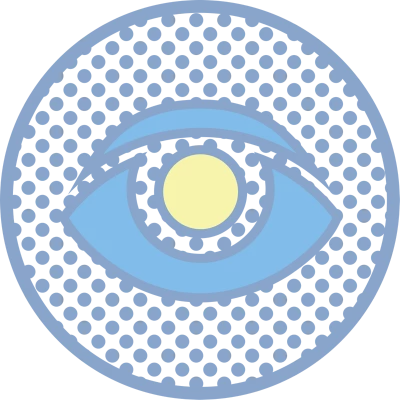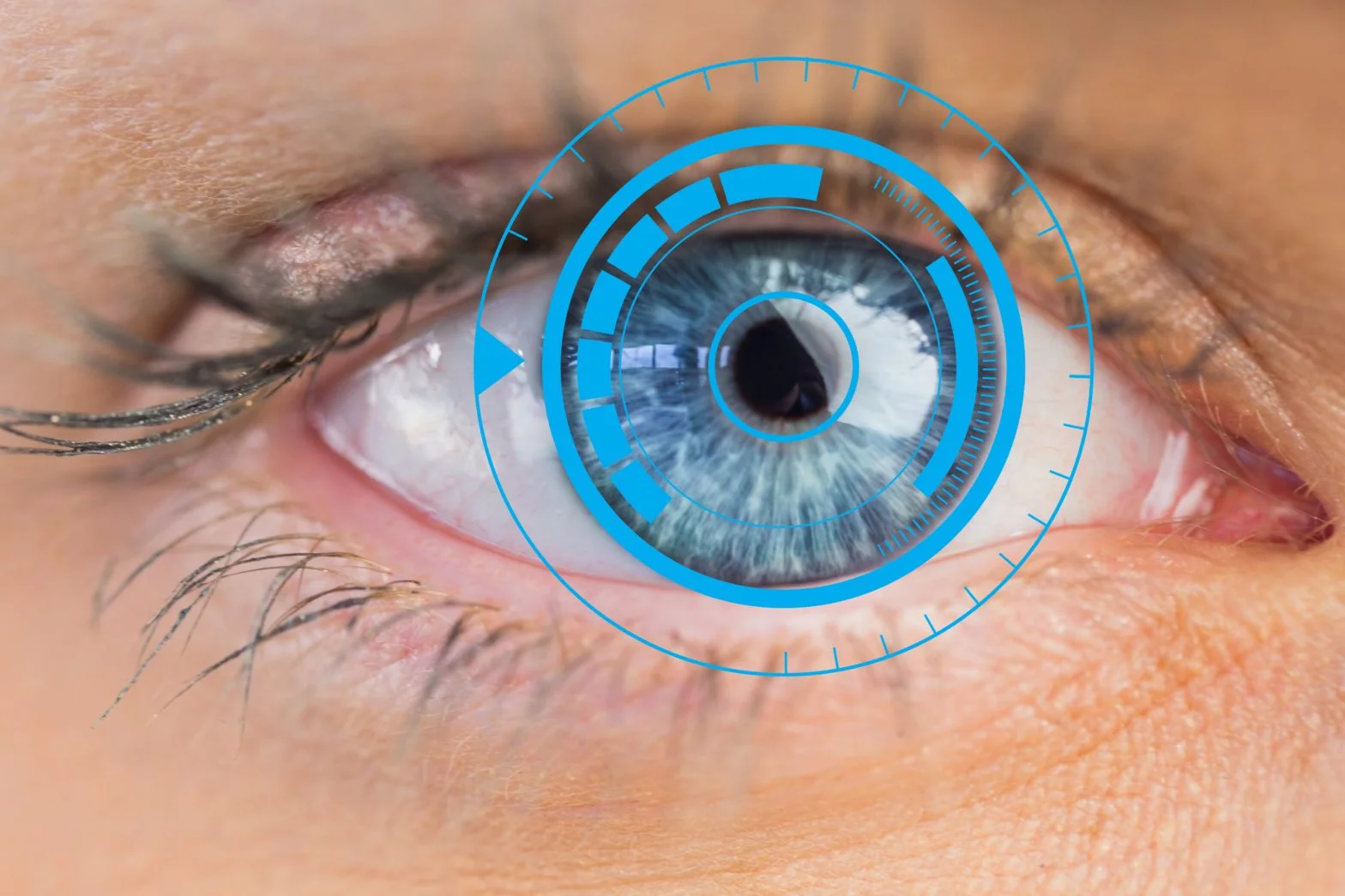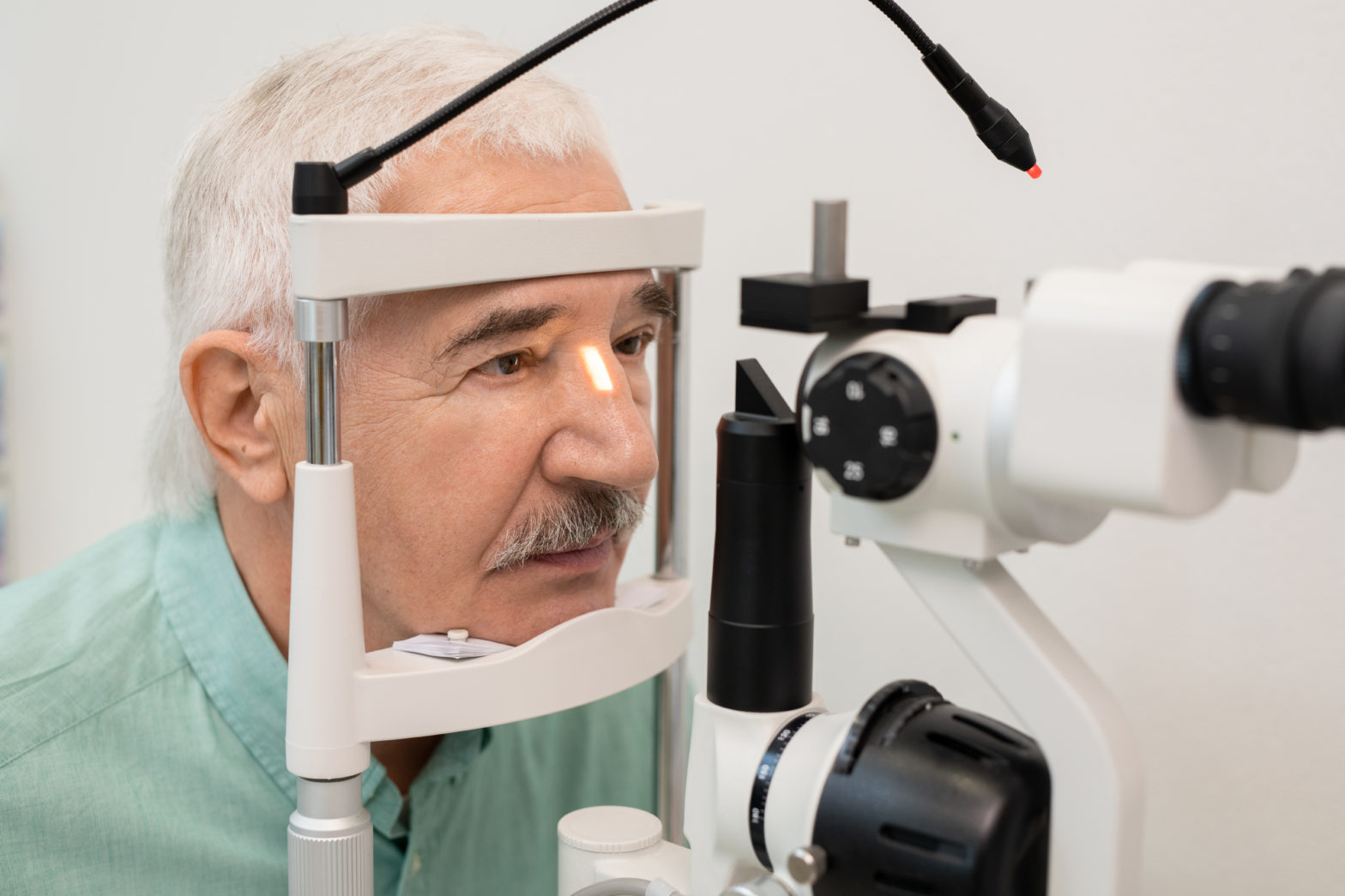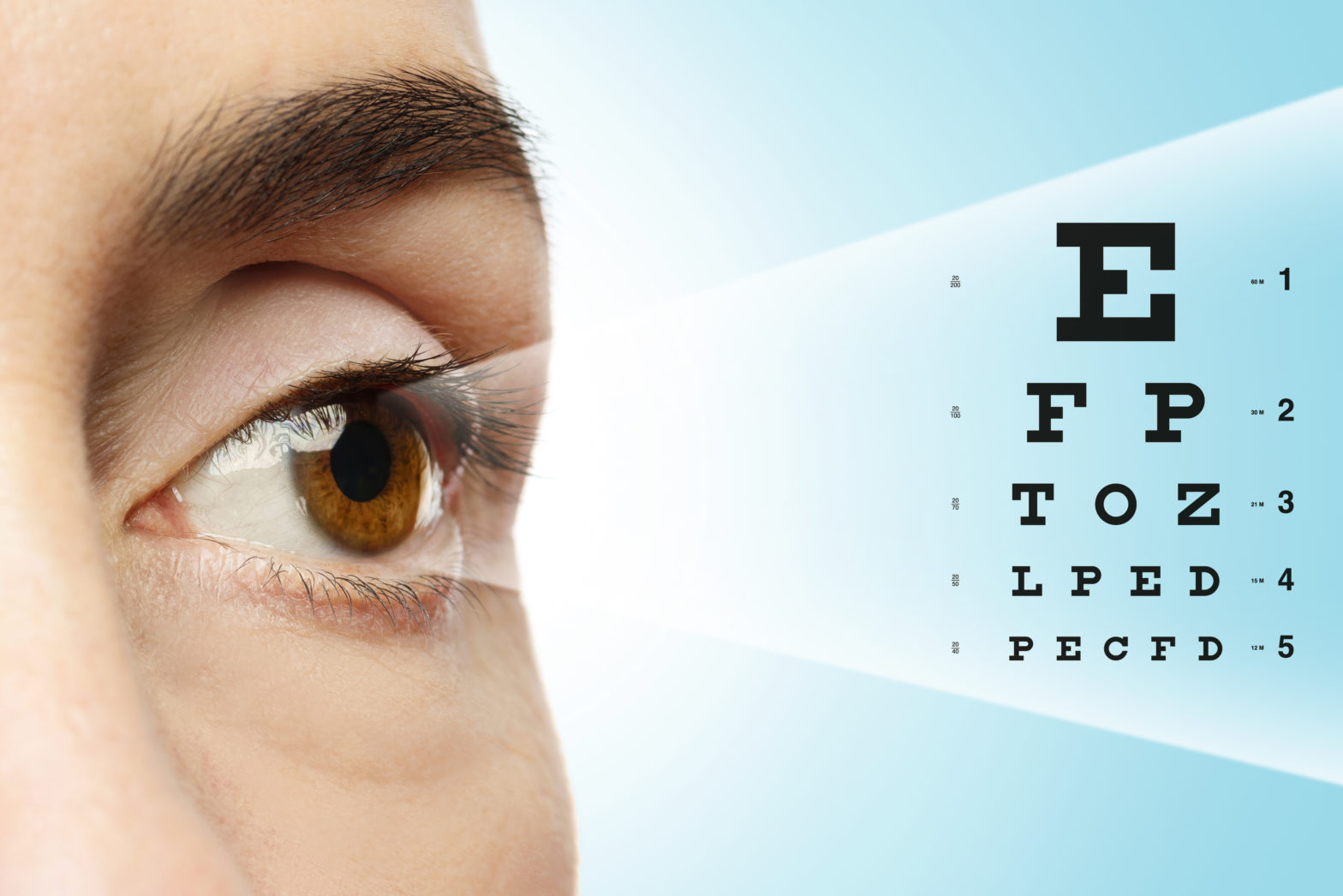What is Cataract?
An eye cataract forms when the lens of the eye becomes cloudy, making it harder to see clearly. The lens, which is normally clear, helps focus light on the retina to produce sharp vision. When it becomes cloudy, it can cause cataract symptoms like blurry vision, glare, and trouble with night driving. Although common in older adults, eye cataracts can also be caused by injuries, medical conditions, or prolonged UV exposure. Cataracts progress slowly but can be effectively treated with modern surgical techniques.
The Most Common Cataract Symptoms Include:
Cataract symptoms vary depending on the type and stage of the cataract. Common cataract signs and symptoms in the eye include:
- Cloudy or Blurred Vision: Objects may appear fuzzy, and vision may feel foggy or unclear.
- Sensitivity to Light and Glare: Bright sunlight, headlights, or even indoor lighting can cause discomfort and difficulty seeing.
- Poor Night Vision: Difficulty seeing in low light or during nighttime activities, such as driving, is common.
- Fading or Yellowed Colors: Colors may lose their vibrancy, appearing dull or washed out.
- Halos Around Lights: Seeing halos or rings around bright lights, especially at night.
- Double Vision in One Eye: Some patients report seeing double images due to the clouded lens.

What are the Causes of Cataract?
There are several causes of cataract, with aging being the most common. Other factors that lead to the formation of cataracts include:
- Aging: Natural changes in the lens cause protein breakdown and cloudiness, resulting in cataracts.
- Eye Injuries: Trauma to the eye can lead to cataract formation, either immediately or years later.
- Family History: A family history of cataracts increases the risk.
- Medical Conditions: Conditions like diabetes significantly increase the likelihood of developing cataracts.
- UV Exposure: Prolonged exposure to ultraviolet rays without proper eye protection can damage the lens.
- Steroid Use: Long-term use of corticosteroids can accelerate cataract formation.
- Smoking and Alcohol: Both habits contribute to oxidative damage in the eye and increase the risk of cataracts.
Different Types of Cataract
There are 6 types of cataract commonly observed, each with its distinct characteristics:
Cortical Cataract
Cortical cataracts form in the outer edges of the lens and gradually extend toward the center, causing vision issues like glare and halos.
Intumescent Cataract
An intumescent cataract involves the swelling of the lens due to fluid buildup, which often leads to sudden and severe vision loss if untreated.
Nuclear Cataract
Nuclear cataracts affect the central part of the lens and are common with aging. They can cause blurry vision and make distant objects hard to see.
Posterior Subcapsular Cataract
This type forms at the back of the lens and progresses quickly, leading to glare and difficulty with tasks like reading. It is often linked to diabetes and steroid use.
Rosette Cataract
Rosette cataracts usually develop after an eye injury, creating a star-like pattern in the lens.
Traumatic Cataract
A traumatic cataract results from an eye injury and can appear immediately or years after the trauma, affecting the clarity of vision.
Cataract Risk Factors
The risk of developing cataracts increases due to several factors. Common cataract risk factors include:
- Aging: The natural aging process is the leading cause of cataracts.
- Genetics: A family history of cataracts can increase your likelihood of developing them.
- Medical Conditions: Diabetes is a major risk factor due to its impact on eye health.
- Prolonged UV Exposure: Without proper eye protection, UV light can damage the lens.
- Smoking: Smoking introduces harmful chemicals that damage the eyes.
- Obesity: Being overweight is linked to higher chances of cataracts.
- Alcohol Consumption: Heavy alcohol use can contribute to cataract formation.

How to Prevent Eye Cataract
While not all cases of cataracts can be prevented, adopting healthy habits can help delay their onset. Here’s how you can reduce your risk of developing eye cataract symptoms:
- Wear UV-Protective Sunglasses: Protect your eyes from the harmful effects of ultraviolet light.
- Maintain a Balanced Diet: Include antioxidant-rich foods like leafy greens, carrots, and citrus fruits in your meals.
- Quit Smoking: Smoking damages eye tissues and contributes to cataract formation.
- Control Medical Conditions: Proper management of diabetes and other health issues can reduce the risk of cataracts.
- Limit Alcohol Consumption: Reducing alcohol intake helps protect overall eye health.
- Regular Eye Check-Ups: Routine eye exams allow for early detection and management of cataracts.
Post-Surgery Care and Recovery Tips
To ensure proper healing after cataract surgery, follow these tips:
-
Wear Protective Eyewear: Use goggles or wraparound glasses to protect your eyes from dust and sunlight during waking hours.
-
Use Prescribed Eye Drops: Follow the schedule recommended by your doctor to prevent infection and reduce inflammation.
-
Avoid Touching or Rubbing Your Eyes: This prevents irritation or the risk of infection.
-
Avoid Strenuous Activities: Refrain from heavy lifting or exercise for the first few weeks.
-
Attend Follow-Up Appointments: Regular check-ups ensure the eye is healing properly.
Most patients experience improved vision within a week, with full recovery in 4-6 weeks.
Types of Cataract Treatment
Cataract Treatment Through Surgery
Cataract surgery is the most effective cataract treatment option It involves the removal of the cloudy lens and replacement with...
Laser Cataract Surgery
This advanced form of cataract treatment uses laser technology to perform precise incisions and break up the cloudy lens Laser-assisted...
Frequently Asked Questions (FAQs) about Cataract
What is the cure for cataract?
Before we jump to cure for cataract or motiyabind treatment, let us first understand the basic definition of cataract. In simple words, clouding of usually clear lens of the eye is known as cataract. Even though surgery is the only solution to treat cataract, a person may not need it right away. Below we have mentioned some of the many ways to treat eye cataract:
- Contacts or New Glasses: A new prescription for contact lenses or eyeglasses can help the person see better in early cataract stages.
- Home Treatment: The best way to treat cataract signs and symptoms is by getting in touch with an ophthalmologist. However, for the time being, a person can make small changes to manage the symptoms of eye cataract:
- Try to use brighter lenses at work and home
- Try using magnifying glasses for reading and other daily activities
- Invest in anti-glare sunglasses
- Surgery: If your eye cataract is getting in the way of your daily activities like driving, reading, watching television, etc. your doctor might suggest surgery through which they replace the clouded lens with an artificial IOL
What are the reasons for getting cataract?
One of the biggest reasons or causes of cataract is injury or aging. In both the cases, there is a change in the tissue that forms the cataract in lens of the eye. Fibers and protein in the lens start to break down leading to cloudy or hazy vision.
Genetic or inherent disorders can also increase the risk of developing cataract. In addition, many other eye conditions can also cause eye cataract like diabetes, past eye surgeries, use of steroids or harsh medications.
What will happen if Eye cataract is left untreated?
It is best to treat eye cataract at early stages or it will get worse with time, affecting the person’s vision. However, if a person decides to wait for too long, there is a high chance that the cataract can become hyper-mature.
This makes the cataract more stubborn and difficult to remove, causing complications in surgery. Therefore, the moment you spot signs of cataract, get in touch with an ophthalmologist to undergo the surgery which is safe and effective.
What are the 3 types of cataracts?
Primarily, eye cataract can be divided into three types namely, posterior subcapsular cataracts, cortical cataracts, and nuclear sclerotic cataracts. To get a more detailed and comprehensive insight, let’s delve into them one by one:
- Nuclear sclerotic cataracts
This is the most common type of cataract that begins with a gradual hardening and yellowing of the primary zone which is also referred to as the nucleus. In nuclear sclerotic cataract, the eye’s ability to focus on close-up vision may improve for a brief period of time but not permanently.
- Cortical Cataracts
This type of cataract forms in the cortex and slowly extends from the outside to the centre of the lens. In some cases, when the light enters the eye, it scatters leading to glare, blurred vision, depth reception, and more. Also, when it comes to cortical cataract, diabetic patients are at a higher risk of developing it.
- Posterior Subcapsular Cataracts
This type of cataract affects an individual’s night vision and reading. It begins as a small cloudy area on the back surface or posterior of the lens. Additionally, since it forms below the lens capsule it is referred to as a subcapsular cataract.
What is an Intraocular lens?
Eye Cataract surgeries are outpatient procedures where a surgeon skilfully removes the clouded lens and replaces it with a clean, artificial lens or IOL. However, when it comes to choosing these artificial lenses, the patient can choose from a diverse range of options according to their requirement, comfort, and convenience.
How much does eye cataract surgery cost?
The cost of eye cataract surgery depends on your health insurance coverage plan and lens option that you choose. Usually, eye cataract surgery is covered in most plans, however, some lens options may be an additional expense that you will have to pay.
To get a better insight into the total cost or cataract surgery, we suggest you get in touch with us via phone or email to book your appointment at the earliest.
Can cataracts develop in one eye only, or do they always affect both eyes?
Cataracts can develop in one or both eyes; however, they don’t necessarily affect both eyes at the same time. Cataracts eventually develop in both eyes, but initially, they can affect only one eye, and the progression can vary between eyes.
Is there any way to slow down the progression of cataracts naturally?
Yes. Eating foods that contain healthy vitamins C and E and lutein, zeaxanthin may reduce the risk of cataract progression naturally.
How is cataract diagnosed during an eye examination?
Cataracts are diagnosed during a comprehensive eye exam that includes a visual acuity test, a slit lamp exam and potentially a dilated exam. The eye doctor will assess your vision, examine the lens for cloudiness and evaluate any other symptoms you might be experiencing.
Is it safe to drive with early-stage cataracts?
The simple answer is yes; you can drive with cataracts only when confirmed by your doctor.
Can cataracts come back after surgery?
No, cataracts themselves cannot come back after surgery. Cataract surgery involves removing the clouded lens and replacing it with an artificial one. Artificial lenses cannot develop cataracts.
At what age should I start getting screened for cataracts?
Doctors recommend getting screened for cataracts around the age of 40 and with frequent screenings (every 1-2 years) around the age of 60.

Do not ignore eye trouble!
Now you can reach our senior doctors by booking an online video consultation or a hospital appointment
Book an appointment now












